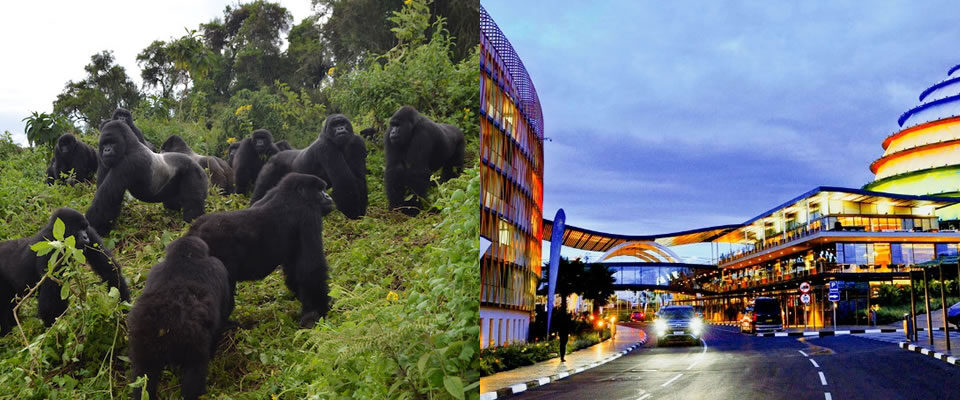- Home
- Ecotours
- Gorilla Safaris
- 01 Day Gorilla Trek – Mgahinga
- 1Day Rwanda Gorilla Trek
- 2 Days Rwanda Gorilla Safari
- 2 Day Bwindi Gorilla Safari
- 3 Days Rwanda Gorilla Trekking
- 3 Day Gorilla Trek Uganda
- 4 Days Double Gorilla Safari
- 4 Day Double Gorilla Uganda
- 4 Days Rwanda Chimpanzee Safari
- 4 Days Rwanda Gorilla Safari
- 5 Day Rwanda Gorilla Adventure
- 7 Day Rwanda Safari Holidays
- 7 Day Uganda Safari
- 8 Days Rwanda Uganda Gorilla
- 9 Days Visit Rwanda Gorillas
- 9 Days Panorama Rwanda
- Tours 2025/26
- Visit Rwanda
- Combo Safaris
- 3 Day Nyiragongo Hike Congo
- 3 Day Rwanda Gorilla & Nyiragongo Hike
- 4 Day Uganda Gorilla – Nyiragongo Hike
- 4 Day Congo Gorilla Trek – Nyiragongo
- 4 Days Rwanda Gorilla & Nyiragongo Hike
- 9 Day Rwanda Uganda + Kenya
- 7 Day Gorilla, Nyiragongo, Lowland Gorilla
- 7 Days Rwanda Gorilla Eco Tourism
- 9 Days Rwanda Uganda Gorilla Tracking
- 9 Days Kenya-Rwanda Gorilla Tour
- 10 Days Kenya-Rwanda Eco Tour
- 11 Days Tanzania-Eco Tours Rwanda
- 12 Day Uganda Rwanda Gorilla Tour
- Gorilla Trek Africa – 13 Days
- Cul Tours
- Lodges
- Rwanda Eco Lodges
- Kwitonda Lodge & Kataza House
- One & Only Gorilla’s Nest Lodge
- One & Only Nyungwe House
- Wilderness Bisate Lodge
- Wilderness Magashi Camp
- Virunga Lodge
- Wilderness Sabyinyo Lodge
- Nyungwe Forest Lodge
- Ruzizi Tented Lodge
- Five Volcanoes Boutique Hotel
- Mountain Gorilla View Lodge
- Le Bambou Gorilla Lodge
- Lapalme Hotel
- Muhabura Hotel
- Congo Eco Lodges
- MICE
- Rwanda Eco Lodges
- Contact Us
- About
- Parks
- Travel
Dancing Pots in Rwanda
Is It Expensive to Travel to Rwanda?
February 16, 2022
Sabyinyo Silver Back Lodge Rebrands as Wilderness Sabyinyo Rwanda
January 17, 2023The Dancing Pots experience offers the visitor a unique opportunity to learn about and interact with this settled and forward-looking Batwa community. The excursion starts with an introductory presentation that explains the historical and cultural background, and prepares the visitor for the interaction with the community. After the short drive to Kanama, you are welcomed by vibrantly drumming and dancing men, excitingly waving and smiling children as well as beautifully clothed singing young ladies.
They are keen and excited to portray their passionately performed artistic skills that made them famous. Dancing, singing and making pottery as part of their traditional lives still rate high in the Abatigayubuke community, so that the pride they feel during their performances is visible, experiential and infectious from the very first moment upon arrival in the village.
The innovative Dancing Pots pottery project was established in 2001 and works with 14 potters’ groups located throughout Rwanda by commercializing the Twa’s traditional skills of pottery and dance, and creating a Twa – run Fair Trade craft enterprise, Dancing Pots is helping to reduce Twa poverty and social exclusion. Pottery belongs to the community’s daily activities. They are lucky to have found a secure clay source some 2km away from the village, enabling them to produce a range of products, including traditional stoves, flower vases and small decorative animals.
The demonstration features the mixing of clay and water, the actual forming of the products and the burning of pottery in the traditional kiln. An opportunity to purchase some of the products as souvenirs is also available. At the end of the stay, your host and interested locals of neighboring communities engage in a traditional get-together party called ‘ubusabane’. This is a very important part of the excursion because it offers unique opportunities for interaction and cross-cultural exchange.
The project aims to improve the living conditions and reduce the social exclusion of the impoverished, marginalized indigenous Batwa potters of Rwanda. The project’s Fair-Trade enterprise helps Batwa develop their traditional skill of pottery to earn a fair and sustainable income and improve their communities’ living conditions thanks to their pottery crafts. The project trains potters to increase the quality and diversity of their products, boosts sales through increased access to high-value markets, and helps potters’ build the capacity of their associations and increase their business know-how, with the potential to take over the management of the enterprise eventually.
Dancing Pots mission is to strengthen the capacity of the Twa community to enable them to actively participate in their socio – economic development and promote their rights. Enhanced capabilities and improved living conditions increase potter’s self-confidence, social standing, and empower them to defend their rights of land and natural resources. As well as counter ethnic discrimination against them.
The project is based on Fair Trade principles, meaning that the Batwa potters groups are paid fair wages in the local context, they have a voice in decision-making and the evolution of the project; working conditions and practices are safe; there is a positive and improving situation for women, protection of children, young workers, and working practices that respect the environment. The project is working towards strengthening the capacity of the potters to be able to improve their living conditions of living.

